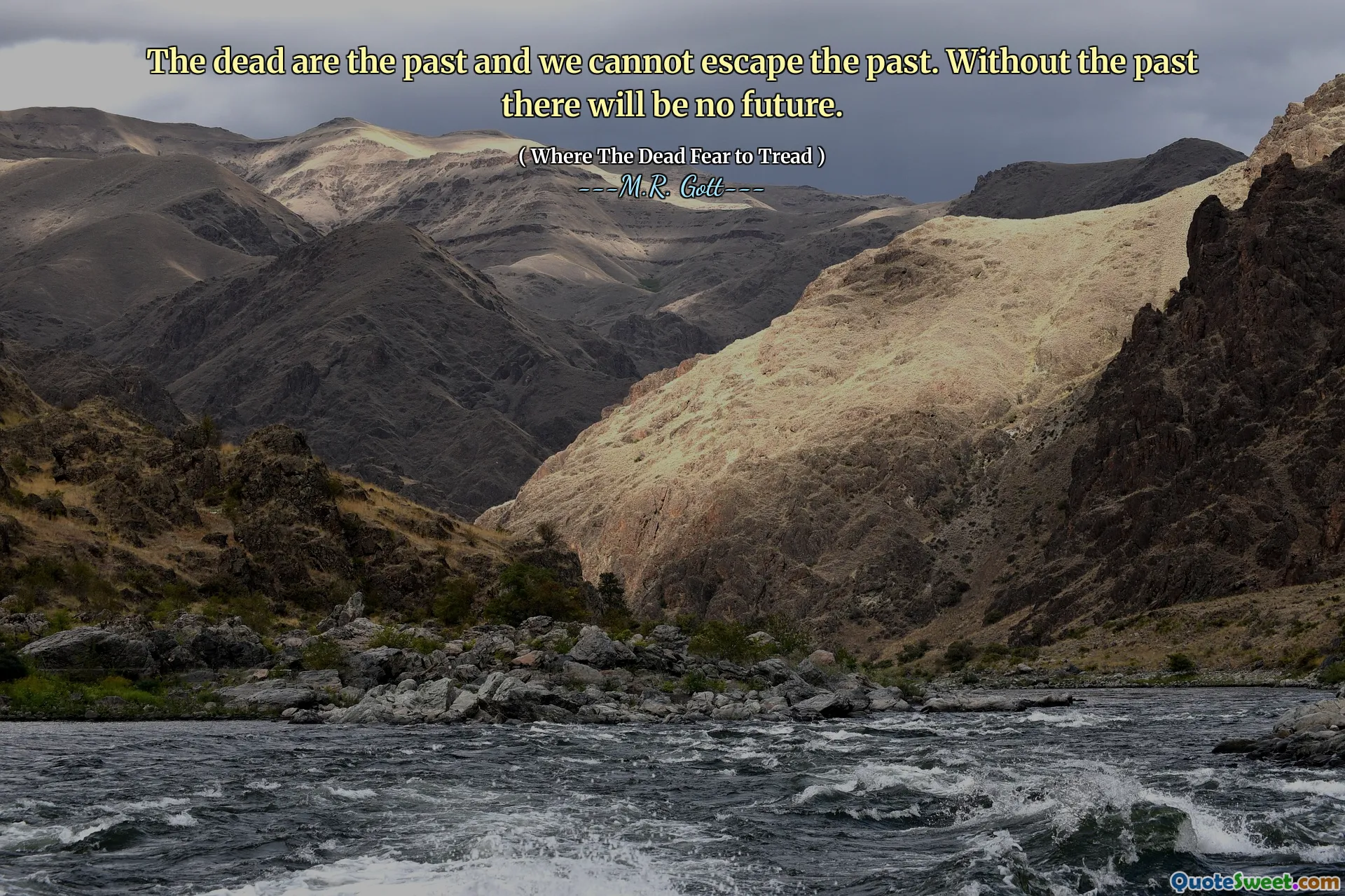
The dead are the past and we cannot escape the past. Without the past there will be no future.
In contemplating the notion that "The dead are the past and we cannot escape the past. Without the past there will be no future," we are invited to reflect on the inextricable link between history, identity, and progress. The quote underscores that our experiences, memories, and even our mistakes form the foundation upon which our present and future are built. Ignoring or trying to deny the past can lead to a disconnection from ourselves and our collective history, potentially resulting in repeating errors or missing essential lessons. This idea resonates deeply within the context of personal growth, cultural heritage, and societal development. The past serves as a repository of wisdom and a cautionary tale, guiding us as we forge ahead. Conversely, it points out that a future devoid of acknowledgment of the past is hollow—an endeavor that risks losing our sense of identity and purpose. Recognizing and embracing our history, even its painful chapters, empowers us to better understand ourselves and the world around us. The quote also emphasizes acceptance, suggesting that rather than escape or deny our history, we should reconcile with it, transforming it into a driving force for constructive change. In the grander scope, it reminds us that progress is cyclical, built upon the accumulated knowledge and experiences of those who came before. Through this lens, the past becomes not a burden but a vital part of ongoing human story, shaping who we are and who we will become.






